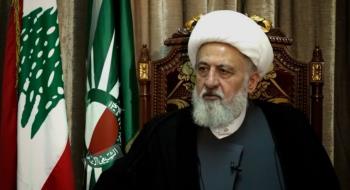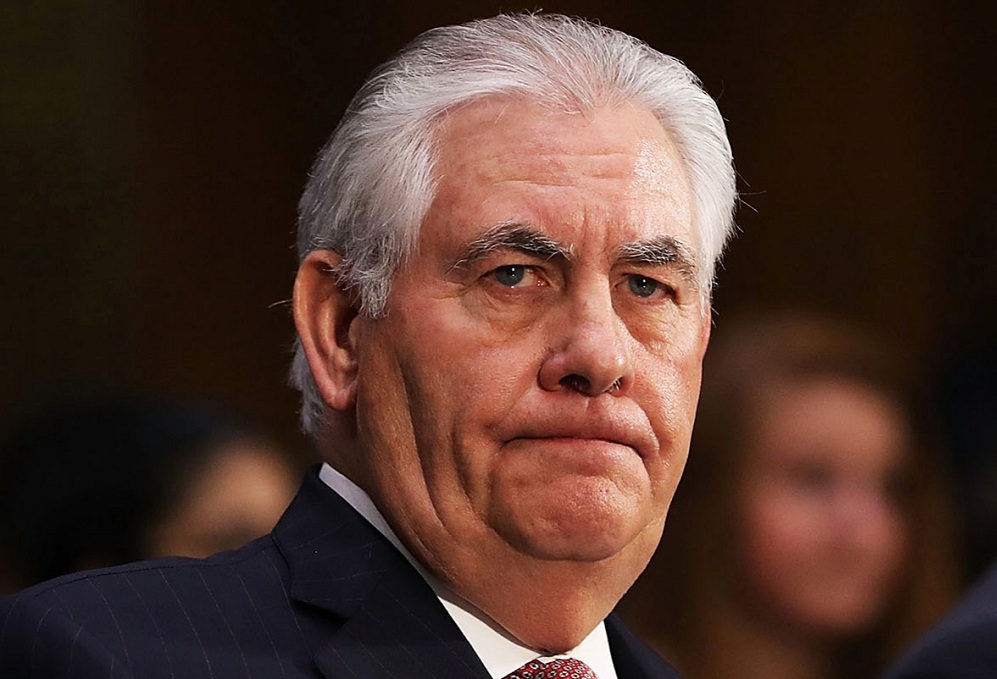While much of America’s political class is transfixed by the debate about connections between Russia and the White House, a quieter but perhaps more consequential drama is playing out at Foggy Bottom. It concerns the startling diminution of Secretary of State Rex Tillerson and perhaps the entire department that he heads. Normally the most important position in the cabinet, the secretary of state has had little impact on the Trump administration so far. And, if anything, his role appears headed for further decline.
The secretary of state draws his or her power less from the U.S. Constitution or the laws than from five sources: backing from the president, advice and support from his or her department’s career officials, admiration from and alliances with other leaders in the government, praise from the press and public, and positive evaluations of his or her competence and power by foreign diplomats. These individuals and groups do not act independently but rather depend on each other and interact to build up or tear down the secretary’s power. Perceptions and reality blend as to be seen as powerful or weak, and that can readily become self-fulfilling in the Washington echo chamber.
These dynamics have worked against Tillerson until now. And though he still has some time to reverse them, he does not have much.
Even more than most cabinet members who have extensive responsibilities detailed by law, the power of the secretary of state depends on the incumbent’s relationship with the president. He or she needs to be able to speak for the president, and audiences both domestic and foreign need to know that this is the case. This is demonstrated not only by presidential statements of praise but also by the secretary’s presence at meetings with foreign leaders and in important policymaking deliberations.
Tillerson’s position here is very weak. President Donald Trump has shown his lack of faith in him by vetoing his choice for the No. 2 position in his department, Elliott Abrams. Tillerson has also been absent for most of Trump’s meetings with visiting leaders. He likewise does not seem to be playing a central role in the few foreign-policy decisions that the Trump administration has made: He does not appear to have been consulted before then-National Security Advisor Michael Flynn took the White House podium to announce that Iran was now “on notice” not to conduct further provocative missile tests; there is no evidence that his advice was sought when Trump huddled with Japanese Prime Minister Shinzo Abe in January after a North Korean missile launch; nor does he appear to have been involved in Trump’s equivocation on whether he still supported a two-state solution in the Middle East. Most dramatically, he has not been able to stave off Trump’s proposal for deep cuts in the budget for diplomacy and foreign aid.
Tillerson might compensate for this lack of support by strong backing from his department. This would not only arm him with information and arguments to make his voice heard but would show other audiences that he has earned the respect of diplomatic professionals. Tillerson unfortunately is weak here as well. News stories indicate that he remains distant from his officials, many of whom have been removed or have resigned, and convey dissatisfaction and negative evaluations of his performance by foreign service officers. A minor indicator was his ignorance of the protocol to be followed when he met his Russian counterpart and neglected to make the standard introductory remarks. This shows that Tillerson was disconnected from his building’s expertise, that he ignored what he was told, or that his subordinates went out of their way to embarrass him.
The news stories are based on leaks, of course, but the very fact that many people in the State Department are willing to express their dismay is a troubling sign. More importantly, these press stories tell everyone in Washington, including foreign embassies, that Tillerson is ineffective. Even if these descriptions are incorrect, by influencing widespread perceptions they undermine him. The fact that Tillerson has not been meeting with reporters, and even temporarily halted the daily departmental press briefings, has contributed to the sense of his being peripheral.
Some people in this position can compensate by drawing on independent support from political elites and the public at large. This was true for Colin Powell, who served as secretary of state under George W. Bush. Although from the start he was not the president’s right-hand man, he was able to retain a seat at the table because of his independent standing as a major national figure based on his previous high-visibility service as national security advisor and chairman of the Joint Chiefs of Staff, which Tillerson lacks.
When he was secretary of state during the John F. Kennedy and Lyndon Johnson administrations, Dean Rusk was not in the president’s inner circle — especially under Kennedy — nor did he have any independent base of support. But in addition to working well with those in his building, he was valued by his peers, especially Secretary of Defense Robert McNamara and National Security Advisor McGeorge Bundy, for his steadiness and good judgment. As a result, he was never excluded from the flow of information or crucial meetings. Although it is too early to tell how Tillerson is regarded by Secretary of Defense James Mattis and National Security Advisor H.R. McMaster, there is no evidence that they have come to rely heavily on him.
Another possible source of support for the secretary is the foreign diplomatic corps with which he interacts. Several of his predecessors like Powell or Rusk already had favorable reputations abroad when they took office, and John Kerry, Barack Obama’s second-term secretary of state, was central to foreign policy less because of his close relations with Obama than because of his deep involvement with multiple international negotiations — including the Iran nuclear deal and his efforts to secure a cease-fire in Syria and an Israeli-Palestinian peace deal — and ties to many international diplomats. Tillerson is pretty much a blank slate to most of his foreign peers and their ambassadors. Perhaps he can gain strength from impressing and influencing them, but this is likely to be difficult unless he can start major negotiations — and bring them to a successful conclusion.
These sources of power are not independent of each other. The more the secretary is seen as enjoying the president’s confidence, the more he or she gains respect from others in the cabinet and professional diplomats, both American and foreign. Conversely, the president is less likely to keep his or her secretary close if the latter is viewed as weak or ineffective by other audiences. The role of the press is important here less as a describer of the scene than as a means of keeping all the other players informed and rendering independent judgments of its own. Washington is a small community, and reputations develop quickly and matter a great deal.
With these weaknesses reinforcing each other, Tillerson is on a downward spiral. Reversing it will require open support from the president, most obviously by his scrapping the diplomatic and foreign aid budget cuts, ratifying Tillerson’s choice of top subordinates, including him in high-profile meetings, and endorsing some of his policies, such as not withdrawing the United States from the Paris climate change agreement. In parallel, Tillerson needs to assert the role of the State Department in issues of trade and migration that are central to Trump’s concerns. Meeting with the press and displaying command of the issues would also be important steps.
Without measures like these, Tillerson and his department are likely to recede even further into the background. This would not be unprecedented: William Rogers played only a small role in Richard Nixon’s foreign policy. But since Trump is not Nixon, and McMaster is not likely to become Henry Kissinger, under the current administration the result would likely be the diminution not only of the secretary of state but of diplomacy as well.



























